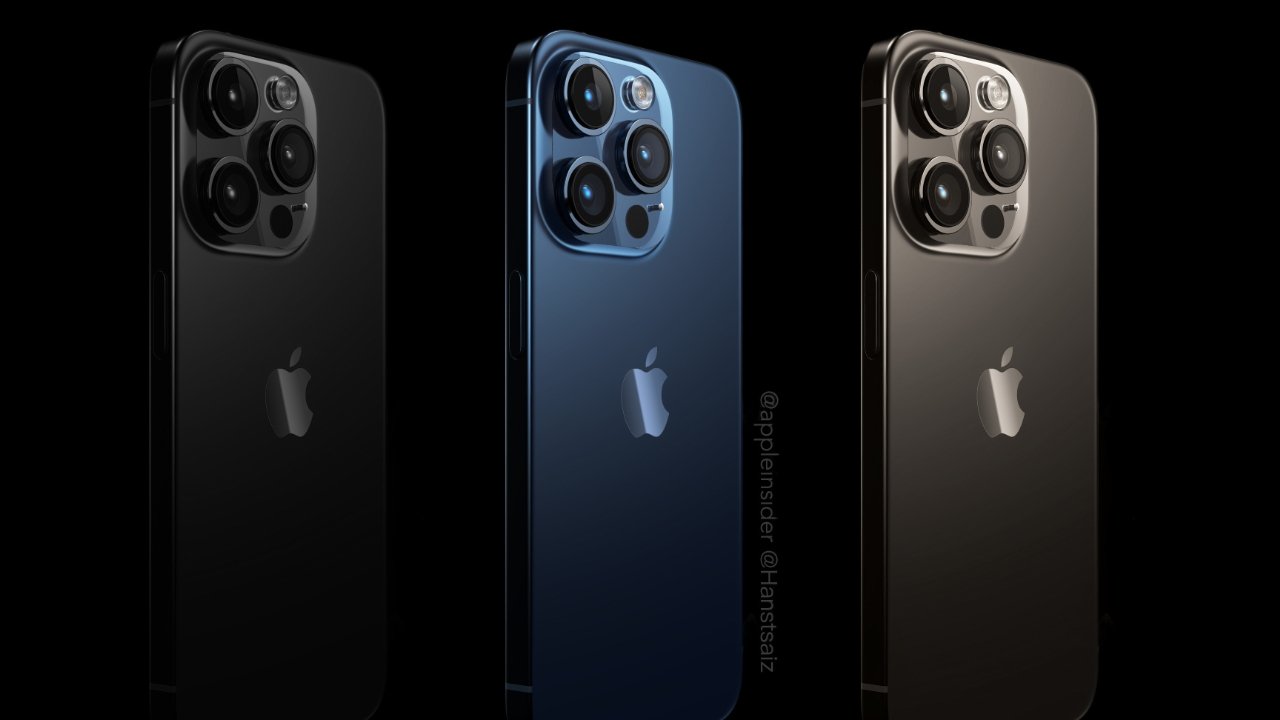Wedbush analysts say that concerns over the Chinese government banning staff iPhones is overblown, and the iPhone 15 will instead see a "mini super cycle" from users looking to upgrade.
Most recently, Wedbush told its investors that it expects Apple to raise prices on at least some models in the iPhone 15 range. Plus with what it called an "installed base pent-up upgrade cycle," its analysts predict strong sales for the new model.
Now in a new note to investors seen by AppleInsider, Wedbush repeats its position but also comments on recent concerns over China. Following the Chinese government's ban on iPhones being used in its buildings or by its staff, rumors have claimed the country will go further, and consequently Apple's share price has taken a beating.
"On the recent China news over the last week," write the analysts, "we believe in a worst case scenario any China government agency iPhone ban is way overblown as to quantify its less than ~500k iPhones of roughly 45 million we expect to be sold in China over the next 12 months."
"We believe despite the loud noise Apple has seen massive share gains in China smartphone market," the note continues, "as we estimate Cupertino has gained roughly 300 bps of market share in the key China market over the last 18 months with iPhone 15 giving Apple incremental momentum on this front."
Wedbush also says that "based on Asia checks," it believes approximately 85 million of the iPhone 15 range are being produced for launch. This is "roughly flat with our year ago number from the iPhone 14 launch," however.
Wedbush continues to list $230 as its price target for Apple.
Apple will announce its iPhone 15 range, and the prices, on September 12, 2023.
 William Gallagher
William Gallagher








 Brian Patterson
Brian Patterson
 Charles Martin
Charles Martin


 Malcolm Owen
Malcolm Owen

 Christine McKee
Christine McKee
 Marko Zivkovic
Marko Zivkovic









5 Comments
Ok, color me skeptical. on the one hand Wedbush talks of a 'mini super cycle' (which is a downgrade from early plain 'super cycle' comments), but on the other hand, it also believes that a flat number of iPhones are being produced for launch compared to last year. Somehow 'flat' and 'mini super cycle' don't sound synonymous.
Irrespective of the seeming logical insistency, I've yet to see an explanation from Dan Ives of Wedbush for *why* we there should be such a pent-up demand that would result in a super cycle (mini or otherwise). Previously, those occurred when there were some landmark new features or technologies - e.g. the iPhone 6's larger screen or the availability of 3g after the initial iPhones. Even the introduction of 5g recently didn't really lead to any big super cycle, so why on earth would Dan Ives predict one for the iPhone 15? I mean, other than the obvious - to help himself and his clients whom he advised AAPL will be at $205 (and higher earlier) in the next 12 months?
Some have suggested the move to USB-C will cause a lot of people to buy new iPhones. Not sure why - simply because they were so frustrated carrying around that lightning cable all those years? It's not like the chargers that those lightning cables connect to aren't already USB. The improved data speed USB-C will bring is only interesting to a very small part of the iPhone market. Most of us do everything wirelessly nowadays.
The move to titanium is said to save weight - maybe 10% - but that's not so much on a 240g iPhone 14 Pro Max. Still a lot more than some Android phones with 6.7" screens. And we don't even know whether that weight savings will actually happen - after all, the Max will also have that new periscope antenna which is probably heavier. Or it might suck more juice, requiring Apple to increase battery size/weight for the Max. Lots of unknowns there.
It's hilarious how they all warn that Apple don't have chips ready because of shortages or problems but apparently, Apple is delivering iPhone 15 with new processors and they go, "oh China problems won't affect Apple's biz..." whatever.
Apple, unlike most companies, is extremely skilled at getting the sources they need despite the uncertainties. Tim Cook really knows what he's doing and that's why Steve Jobs hired him and appointed him to become the CEO of Apple after his death.
I heard today 9/11 that China’s CCP has a publicity campaign promoting Huawei phones over iPhones.
It’s Nationalistic propaganda. Not good.
It’s a stealthy way to discourage Apple products without an outright ban of public use.